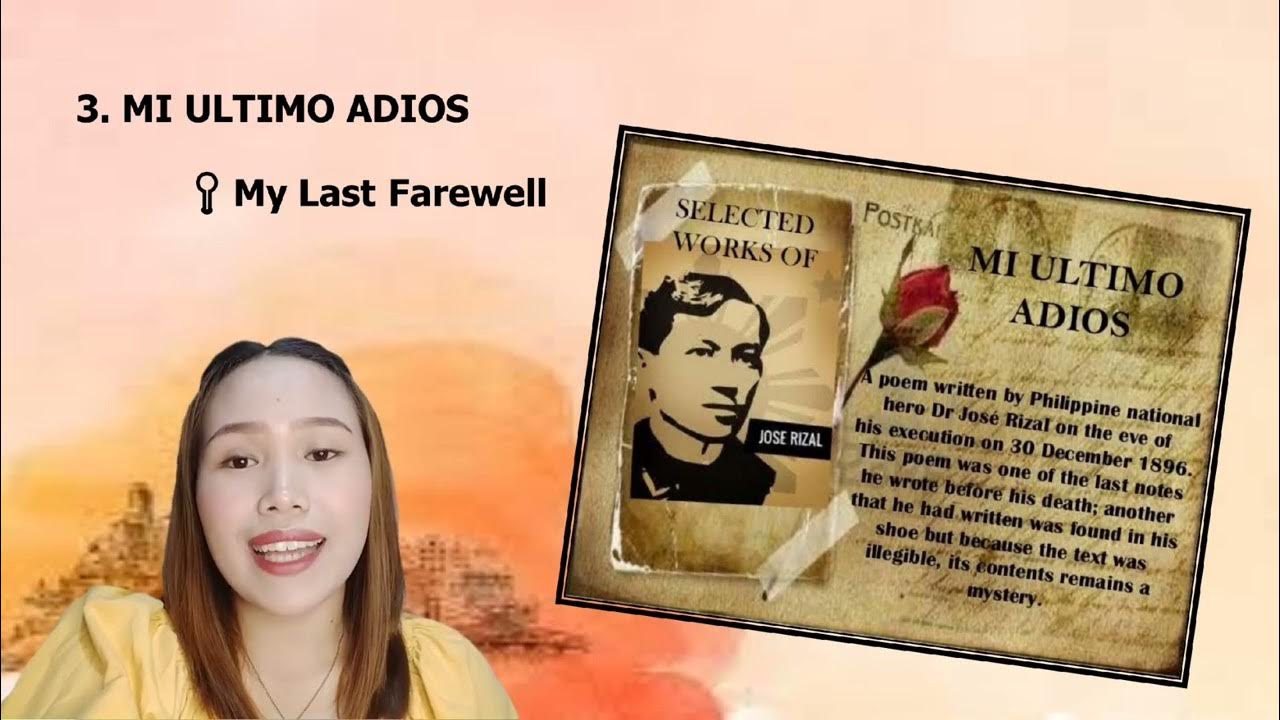01 - Rizal Law (RA 1425) | Life and Works of Rizal
Summary
TLDRThis video delves into the Rizal Law, or RA 1425, which mandates the study of Rizal's life and works, particularly 'Noli Me Tangere' and 'El Filibusterismo,' in all Philippine universities. Passed in 1956 to strengthen Filipino identity and nationalism, it faced fierce opposition from the Catholic Church. Despite controversy, the law aimed to instill patriotism and self-awareness through Rizal's ideals. The video challenges viewers to reflect on the law's relevance and impact 67 years later, questioning if studying Rizal remains significant beyond legal obligation.
Takeaways
- 📚 The Rizal Law, officially known as RA 1425, mandates that all colleges and universities in the Philippines must teach the life and works of Jose Rizal, particularly his novels 'Noli Me Tangere' and 'El Filibusterismo'.
- 🏛️ The law was established to strengthen Filipino identity and national pride through education, as there was a perceived loss of Filipino identity post-World War II.
- 🗓️ The Rizal Law was passed on June 12, 1956, by President Ramon Magsaysay, with the aim to instill the ideals of freedom and nationalism in the youth.
- 🤔 The necessity and relevance of studying Rizal's works are questioned, as the video script invites viewers to reflect on whether the law has achieved its intended goals since its enactment in 1956.
- 🔍 The script highlights the controversy surrounding the Rizal Law, particularly the opposition from the Catholic Church due to Rizal's criticisms of the Church in his novels.
- 📖 The 'Noli-Fili Bill', which preceded the Rizal Law, initially focused only on the two novels but was later expanded to include other works by Rizal.
- 🚫 The Catholic Church and conservatives opposed the bill, arguing that it could discredit religion and promote anti-Catholic sentiments.
- 📝 The final version of the Rizal Law allows for exemptions for students who may not wish to study the novels and stipulates that only the unexpurgated versions of the works can be taught.
- 📚 The purpose of studying Rizal's original, uncensored works is to maintain the integrity of his message and the law's intent to foster a strong sense of national identity.
- 🤷♂️ The video script acknowledges the difficulty in assessing the actual impact of the Rizal Law on Filipino society after more than six decades, leaving the question of its continued relevance open for debate.
- 📖 The script concludes by posing the question to the audience: Should we still study Rizal?, suggesting that the answer may be subjective and dependent on individual perspectives.
Q & A
What is the Rizal Law?
-The Rizal Law, also known as RA 1425, is a law that mandates all colleges and universities in the Philippines to teach the life and works of Jose Rizal, particularly his novels 'Noli Me Tangere' and 'El Filibusterismo'.
Why was the Rizal Law enacted?
-The Rizal Law was enacted to rebuild and strengthen the Filipino identity, which was perceived to be diminishing, and to instill a sense of national pride and patriotism through education about Rizal's life and works.
What was the role of Senator Claro M. Recto in the Rizal Law?
-Senator Claro M. Recto submitted Senate Bill No. 438, also known as the Noli-Fili Bill, to the Senate Committee of Education, which aimed to make Rizal's novels compulsory reading in all public and private colleges and universities.
What was the controversy surrounding the Noli-Fili Bill?
-The Noli-Fili Bill faced opposition, particularly from the Catholic Church and conservatives, due to Rizal's criticisms of the Catholic Church in his novels, which they believed would discredit religion.
What were the arguments made by the Catholic Church against the Noli-Fili Bill?
-The Catholic Church argued that the bill would promote anti-Catholic sentiments, was offensive to their faith, could cause unrest, and infringed upon freedom of speech and religious freedom.
What compromise was reached to address the opposition to the Noli-Fili Bill?
-A compromise was reached with a substitute bill proposed by Senator Jose P. Laurel, which included not only 'Noli Me Tangere' and 'El Filibusterismo' but also other works of Rizal, allowed for exemptions, and specified that only the unexpurgated versions of the novels could be taught.
What is the significance of studying the unexpurgated versions of Rizal's novels?
-Studying the unexpurgated versions of Rizal's novels is important because it allows students to understand the original intent and messages of the works without any censorship or editing that might alter their meaning.
What are the three main goals of the Rizal Law?
-The three main goals of the Rizal Law are to rededicate the lives of youth to the ideals of freedom and nationalism, to pay tribute to Rizal for his contributions to shaping the Filipino character, and to inspire patriotism through the study of Rizal's life, works, and writings.
Has the Rizal Law achieved its intended objectives since its enactment in 1956?
-The script does not provide a definitive answer to whether the Rizal Law has fully achieved its objectives, and it invites viewers to reflect on the impact of the law and the relevance of studying Rizal in the present day.
What is the final question posed to the viewers regarding the study of Rizal?
-The final question posed to the viewers is whether they believe it is still necessary to study Rizal, considering the law's requirements and its impact on Filipino identity and patriotism.
Outlines

此内容仅限付费用户访问。 请升级后访问。
立即升级Mindmap

此内容仅限付费用户访问。 请升级后访问。
立即升级Keywords

此内容仅限付费用户访问。 请升级后访问。
立即升级Highlights

此内容仅限付费用户访问。 请升级后访问。
立即升级Transcripts

此内容仅限付费用户访问。 请升级后访问。
立即升级5.0 / 5 (0 votes)






